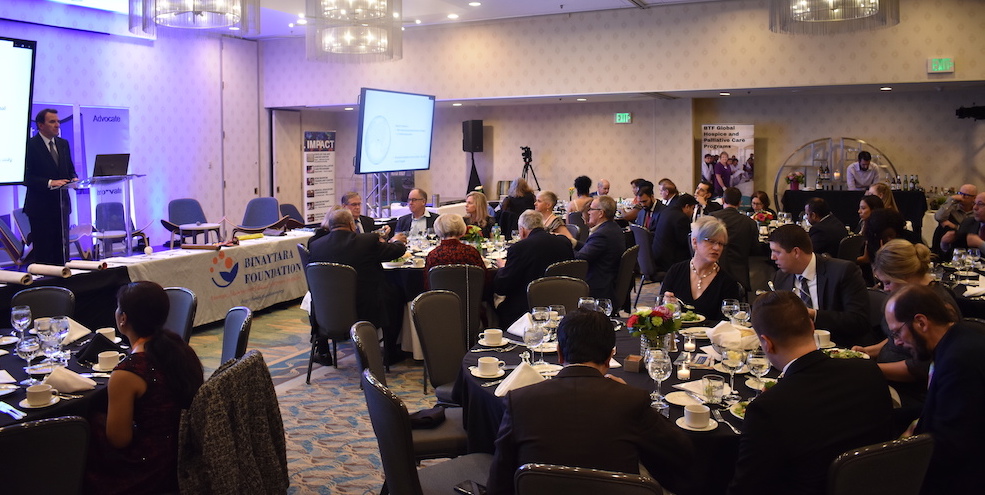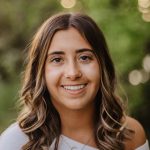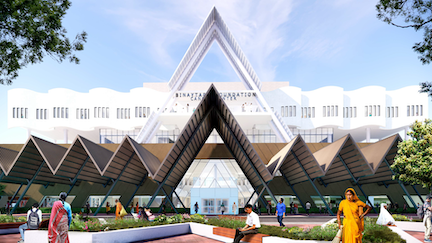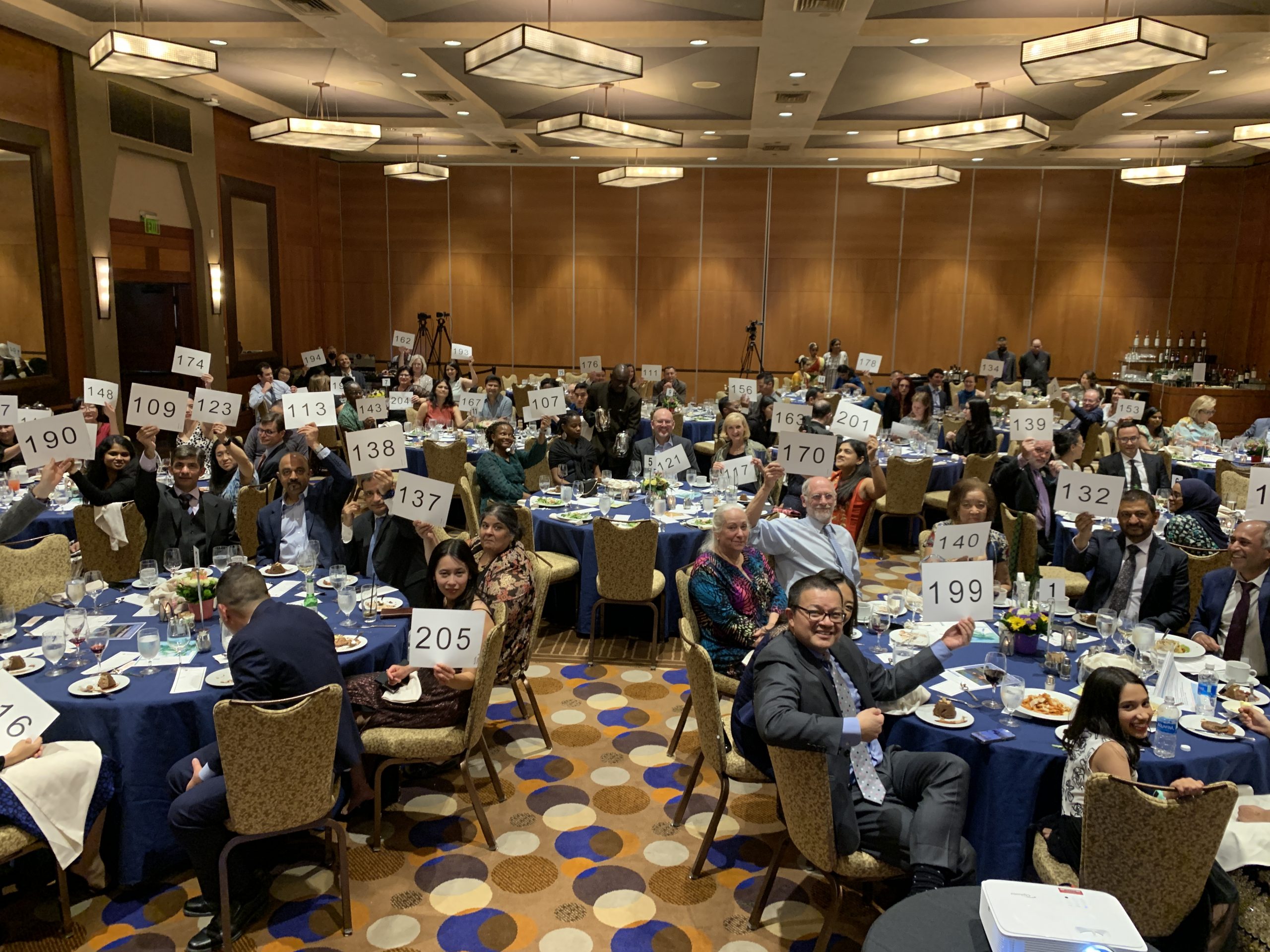Tara Shah Address to BTF 2022 Annual Gala Guests
Apr 30, 2022

Good evening!
I am honored to be here tonight. Last year when I was on this stage, I shared with you that I was nervous. The same is true this year, so please bear with me.
Two years ago, when I was in Nepal, I met a woman who had come to the hospital for breast cancer treatment. She had two young girls with her (about the age of my two daughters, Angie and Jaya). We started talking about her health, her daughters, and the impact of her cancer on her family. This woman was fighting cancer not just for herself but for her two daughters and the entire village. The mother sold vegetables in the local farmers’ market to send her daughters to a good school because her husband’s family did not want to spend money on educating the girls. The older daughter spoke to me in English, even though I was talking to her mother in their native language. She said she wants to be a cancer doctor and save many more women in her mother’s situation.
That conversation brought back my own old memories of growing up in Nepal. It reminded me how saving this one woman’s life was going to save many lives. When I was growing up in a small village in Nepal in the early 90s. Democracy had just been established in the country, and more families were sending their daughters to school than before. However, the ratio of boys to girls in my school was probably 5:1, and the primary purpose of educating girls at that time was to find an educated groom/husband for her. Most girls in my village got married before they completed high school.
One winter morning when I was in 8th grade, we had our extended family over at my house for a festival or a religious celebration. The women were busy in the kitchen preparing for the celebration while the men were discussing politics and drinking tea, enjoying the warm sun on the verandah. I was studying in the room next to the kitchen. One of my great-aunts came to me and asked me to help her in the kitchen. I told her I could not because I was studying for the district-level exam. She was very upset and went to my mom and said – “Your daughter is old enough to get married; you should be teaching her household work so that she can serve her husband and her family rather than be married to her notebooks and pens.”
My mom smiled and replied –
“If I make her do household work now, she will learn and serve her family. But if I let her study now, she will be capable of serving the world.”
That didn’t go well with my great-aunt, but I felt relieved that I did not have to go to the kitchen. I did not really understand at that time what my mom meant by – “serving the world,” but it became clear to me that my mom, who herself was pulled out of school at a young age, expected me to do something beyond the boundaries of relationships and social identities. Those words of my mother became the guiding force for me as I started looking within myself to find my life’s purpose.
The situation of those girls I met in the cancer hospital two years ago was not much different from mine 25 years ago. We both had mothers who fought for our future. The only difference was that I was lucky; my mother did not have cancer when I was growing up. Otherwise, I would not be here today sharing this story with you. These girls are growing up in the 21st century, but their fight for survival is tougher than many of us can imagine. Luckily, their mother was diagnosed in time and responded well to the cancer treatment. Today, she continues to fight for her daughters.
Sadly, not all stories have a happy ending like this. In the 15 minutes we have been in this room, hundreds of our fellow humans around the globe have died from cancer, many of them without a diagnosis or treatment. By building this hospital, we are not only saving cancer patients’ lives, but we are also uplifting societies, we are saving families, and we are saving girls and boys from poverty and abuse that, sadly, they will likely face by losing a parent.
I know we don’t have answers to every question. But we do have solutions to this problem – the preventable deaths from cancer in developing countries like Nepal, Vietnam, Haiti, and many others. These answers are no different from the answers each one of us seeks when we are faced with cancer. We all know these answers – we need to build infrastructure, we need to train people to diagnose and treat cancers, and we need to take care of people like their lives matter.
I am extremely privileged. I have the incredible honor of being here tonight, sharing my stories with you, some of the most accomplished professionals in the world. You have saved many lives as healthcare providers, as researchers, as health equity champions, and as humans who care about other humans. Therefore, I am asking for your support to build this cancer hospital. I need you to donate, and I need you to ask others to donate. This is our opportunity to save lives, to build communities, to uplift humanity.

Next Post
Volunteer Spotlight: Grace Frary


